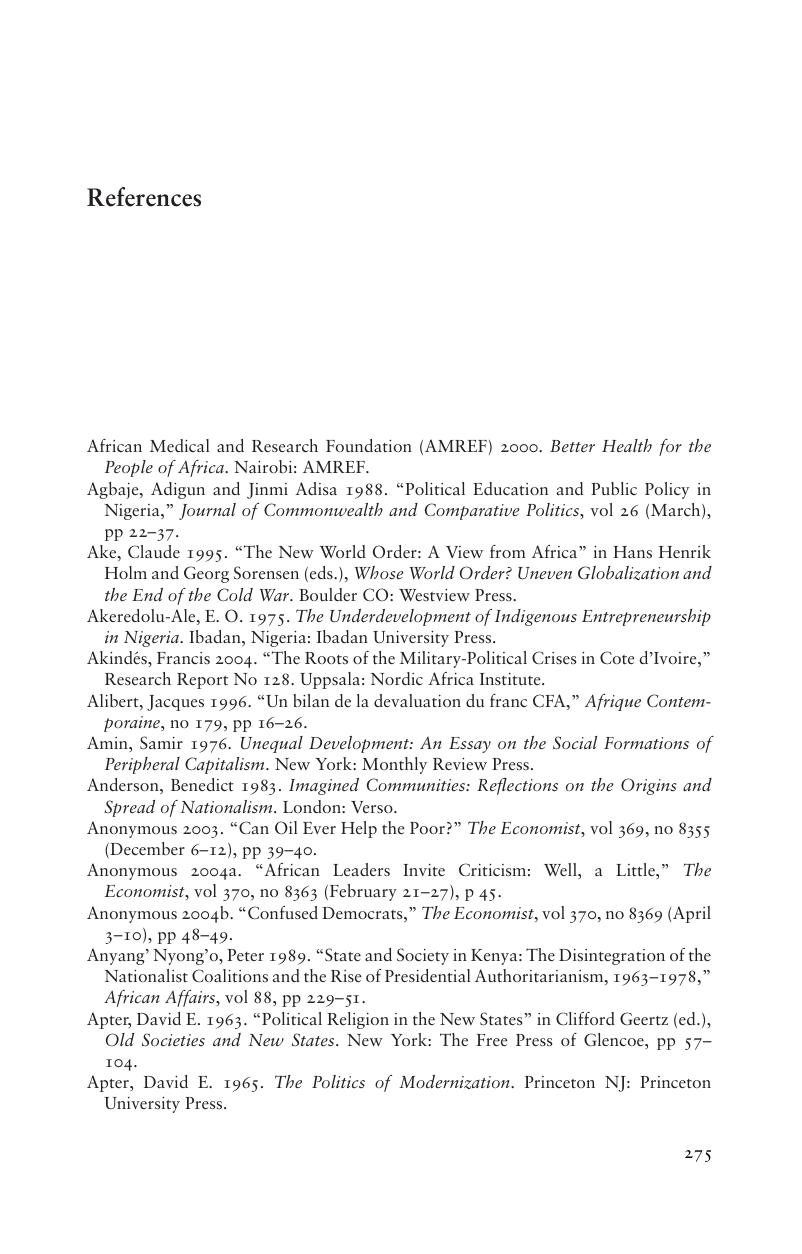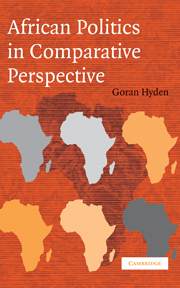Book contents
- Frontmatter
- Contents
- Acknowledgments
- 1 The Study of Politics and Africa
- 2 The Movement Legacy
- 3 The Problematic State
- 4 The Economy of Affection
- 5 Big Man Rule
- 6 The Policy Deficit
- 7 The Agrarian Question
- 8 Gender and Politics
- 9 Ethnicity and Conflict
- 10 The External Dimension
- 11 So What Do We Know?
- 12 Quo Vadis Africa?
- References
- Index
- References
References
Published online by Cambridge University Press: 05 September 2012
- Frontmatter
- Contents
- Acknowledgments
- 1 The Study of Politics and Africa
- 2 The Movement Legacy
- 3 The Problematic State
- 4 The Economy of Affection
- 5 Big Man Rule
- 6 The Policy Deficit
- 7 The Agrarian Question
- 8 Gender and Politics
- 9 Ethnicity and Conflict
- 10 The External Dimension
- 11 So What Do We Know?
- 12 Quo Vadis Africa?
- References
- Index
- References
Summary

Information
- Type
- Chapter
- Information
- African Politics in Comparative Perspective , pp. 275 - 298Publisher: Cambridge University PressPrint publication year: 2005
